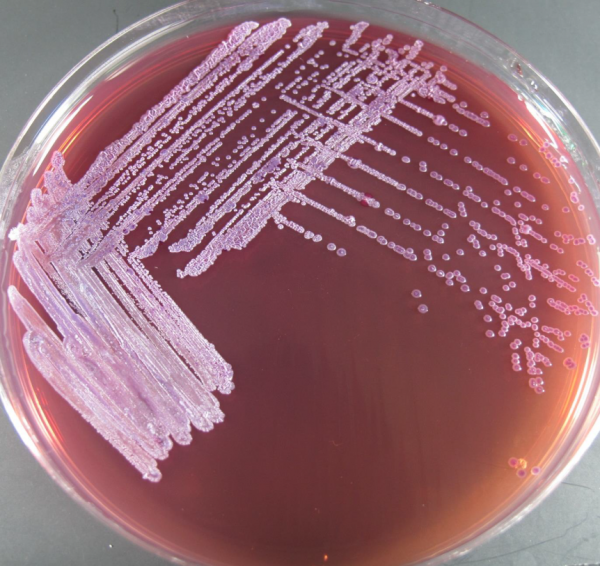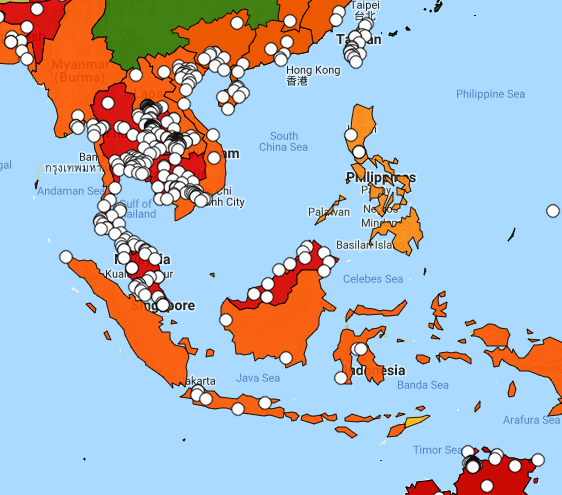Melioidosis
Melioidosis is a potentially fatal infectious disease caused by the environmental bacterium, Burkholderia pseudomallei. Melioidosis is endemic in many tropical countries. The disease has very few specific clinical manifestations, and B. pseudomallei is intrinsically resistant to many commonly used antimicrobials. The mortality of patients treated inappropriately could be up to 90%.

The burden of melioidosis is largely hidden. Diagnosis of melioidosis requires high suspicion/recognition by physicians and confirmation by isolation of B. pseudomallei from any clinical specimen such as blood, urine, sputum and pus. However, B. pseudomallei is commonly misidentified as a culture contaminant or as another species (e.g. Pseudomonas spp.), especially by laboratory staff unfamiliar with this organism.
The Melioidosis Research Coordination Network (RCN)
The Melioidosis Research Coordination Network has set up an open-access data platform to raise awareness of the burden of melioidosis worldwide.
One of the objectives of this network is to collect and curate data of the total number of culture-confirmed melioidosis cases and total number of fatal cases in different places and make these data available to everyone. By doing so, this could:
- Promote a common understanding of the risk and incidence of melioidosis;
- Connect researchers to potential sources of support from the research community across the biological resilience spectrum (prevent, detect, respond, and recover) and
- Convene and coordinate funders that can support melioidosis research.
The Melioidosis RCN, including the updated open-access map and database of culture-confirmed melioidosis cases and of collaborators, has been supported in the following ways:
- The initiation of the melioidosis.info website, the evidence-based map and the predictive map (PMID26877885) was funded by the Wellcome Trust (grant no. 101103).
- The Biological Threat Reduction Program (BTRP) has supported the organisation of a Research Coordination Network (RCN) for melioidosis in Southeast Asia. BTRP has supported the enhancement of the database to include unpublished culture-confirmed melioidosis cases and collaborators. The RCN also supports and promotes workshops, research and other collaborative activities (grant no. HDTRA1-16-C-0017).
If you would like to contribute your local numbers of culture-confirmed melioidosis cases and fatalities or any other relevant information about your institution, please contact or direk@tropmedres.ac.

Full map viewable at melioidosis.info
IPD Data Platform Scoping and Feasibility Study
A joint project between IDDO and MORU is in progress to assess the feasibility of developing a data platform for individual participant level data from melioidosis clinical studies. Funded by the Wellcome Trust, part of this scoping exercise includes a systematic review of clinical studies to assess the efficacy of antibiotic treatment for melioidosis.
This systematic review intends to provide evidence for supporting and strengthening current treatment guidelines for melioidosis, and to summarise the landscape of clinical studies evaluating the melioidosis treatments, study types, patient numbers, and their geographic origins. Understanding the clinical study landscape in relation to melioidosis treatments will allow for the evaluation of data quality and the level of heterogeneity, and to identify areas with solid evidence and research gaps to assess feasibility of developing an IPD data platform.
If feasible, building a global melioidosis data platform would require extensive collaboration. We are looking to engage with stakeholders and leaders of the melioidosis research community as early as possible to understand the needs, purpose and future output that a platform could provide to potential partners, researchers and policy makers. Please contact direk@tropmedres.ac or info@iddo.org for further information about this scoping project.